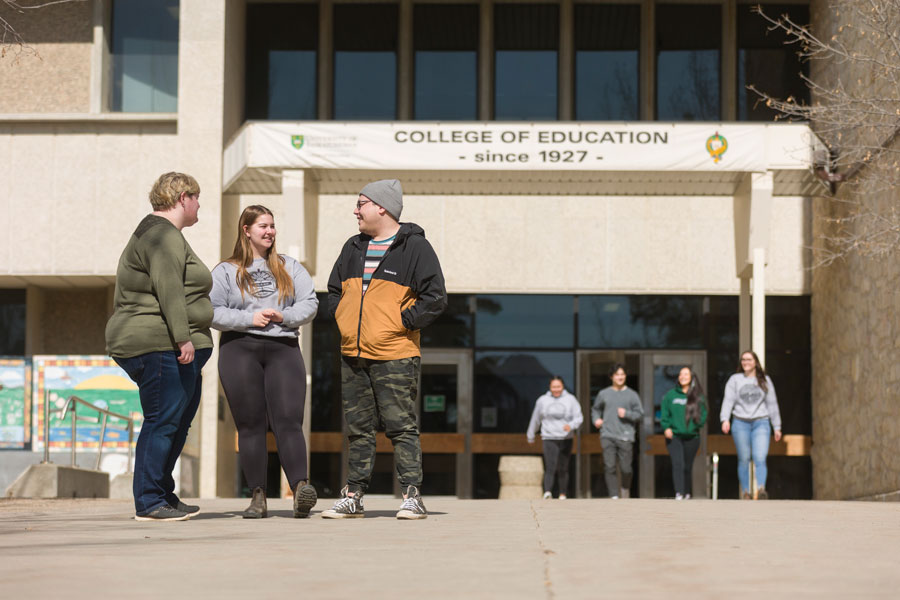
College of Education program ‘feels like home’
Master’s degree cohort was created to meet the needs of Indigenous educators, leaders, and communities in Saskatchewan and beyond
By SHANNON BOKLASCHUKA graduate program at the University of Saskatchewan (USask) aims to meet the needs of Indigenous leaders and communities and advance the Calls to Action of the Truth and Reconciliation Commission of Canada (TRC).
The Master of Education (MEd) in Educational Administration – Leadership in Indigenous Education and Organizations Cohort offers opportunities for current and aspiring Indigenous educational leaders to enhance their expertise in various aspects of leadership, governance, and management of First Nations schools through practical, research-based, and theoretical course offerings.
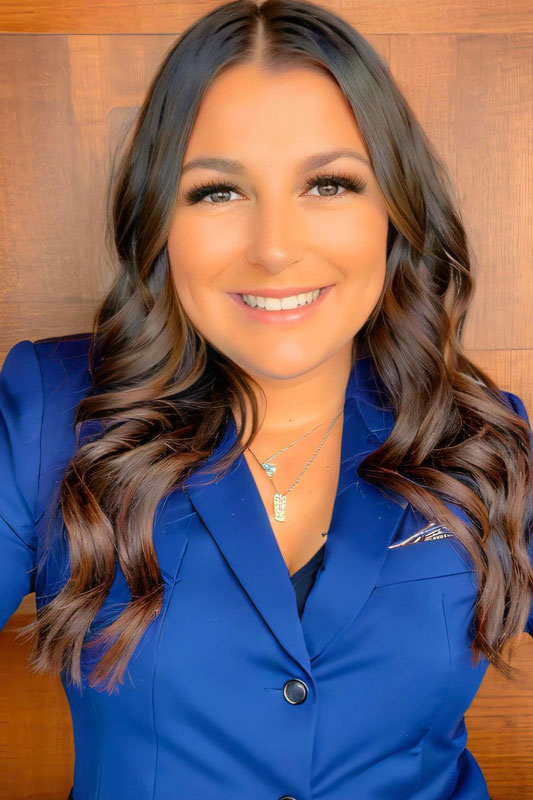
For USask student Kyla Morin (BEd’17), the College of Education program “feels like home,” and her fellow students feel like family members.
“We can all connect from our personal, work, and academic experiences,” she said.
Morin, who was born and raised in Ile-a-la-Crosse, Sask., became the first person in her family to obtain a university degree when she graduated from the Saskatchewan Urban Native Teacher Education Program (SUNTEP) at USask in 2017. The support Morin received from her family, community, and instructors, as well as from her employer, the Saskatchewan Indian Institute of Technologies (SIIT), encouraged her to continue her education. She is now enrolled in the Master of Education in Educational Administration — Leadership in Indigenous Education and Organizations Cohort program, and it has been a great experience so far.
“I would recommend this program to Indigenous students who want to pursue their master’s. There is a lot of support, encouragement, discussions, debates, and learning,” she said. “You won’t feel alone if you are struggling; chances are, someone else in the cohort is probably going through the same thing.”
Morin believes the graduate program is equipping her with the tools she needs to continue to excel at her job at SIIT. She is currently employed as the Adult Basic Education (ABE) program co-ordinator and supervises 10 programs throughout Saskatchewan.
“I am an Indigenous wife and a mom of three. I enjoy beating the statistics of being successful in Canada. I am that little Northern kid that a single mom raised. My chances of being successful were really low,” she said. “I showed my family, friends, and community that we can do it. I want to be a role model for my children, nieces, and nephews. Education is important. Education will create knowledge, and from knowledge will come understanding. From understanding will come respect—self-respect for Indigenous people and mutual respect for all. The treaties must not be forgotten.”
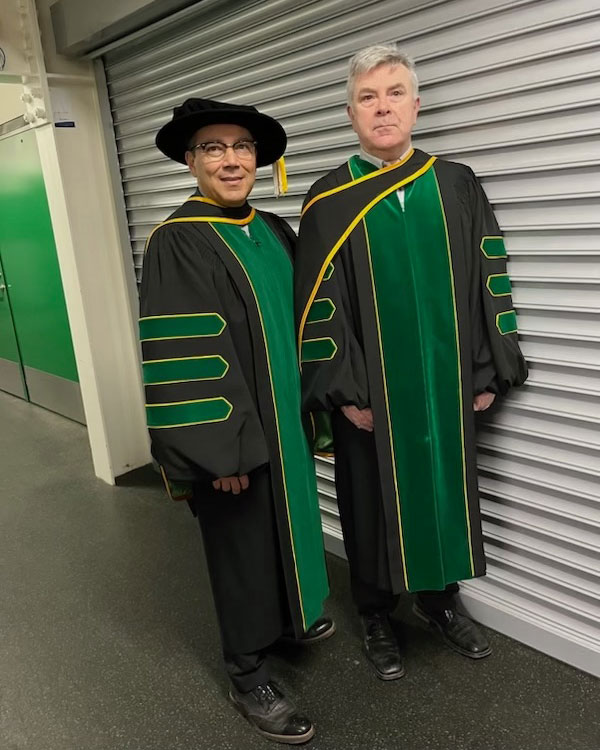
Dr. Michael Cottrell (PhD'88), an associate professor and graduate chair in the Department of Educational Administration in the College of Education, said the MEd cohort program is built upon the strong foundation of other teacher education programs in the college that date back to the 1970s, such as SUNTEP, the Northern Teacher Education Program (NORTEP), and particularly the Indian Teacher Education Program (ITEP), which recently celebrated its 50th anniversary.
“The model for this was the amazing work that ITEP has done in creating supportive cohorts,” said Cottrell. “This is, in a way, moving the ITEP model into graduate studies.”
In the 2000s, USask experienced a rise in the number of graduates from those Bachelor of Education (BEd) programs who were interested in pursuing graduate studies. By the year 2015, the rising interest resulted in a significant increase in Indigenous student enrolment in the college’s course-based master’s degree program—which primarily caters to educators in Saskatchewan who aspire to move into leadership roles in the Kindergarten to Grade 12 education system.
The college received feedback from Indigenous educators and prospective graduate students who wanted to move beyond some of the content in that master’s program to explore the unique dynamics of leading in First Nations schools. That learning goal became the catalyst to create the more specialized Master of Education in Educational Administration – Leadership in Indigenous Education and Organizations Cohort.
Cottrell said the Indigenous master’s cohort program was also developed as a response to the TRC Calls to Action—particularly the “calls to universities to do better in creating curriculum specific to Indigenous students.” The TRC recognized historical injustices in education, he said, and programs like the Leadership in Indigenous Education and Organizations Cohort are an important part of reconciliation.
“Those things then led to conversation where we decided it would be a good idea to create an Indigenous cohort within our Master of Education in Educational Administration program, with a focus on preparing leaders within First Nations schools,” said Cottrell.
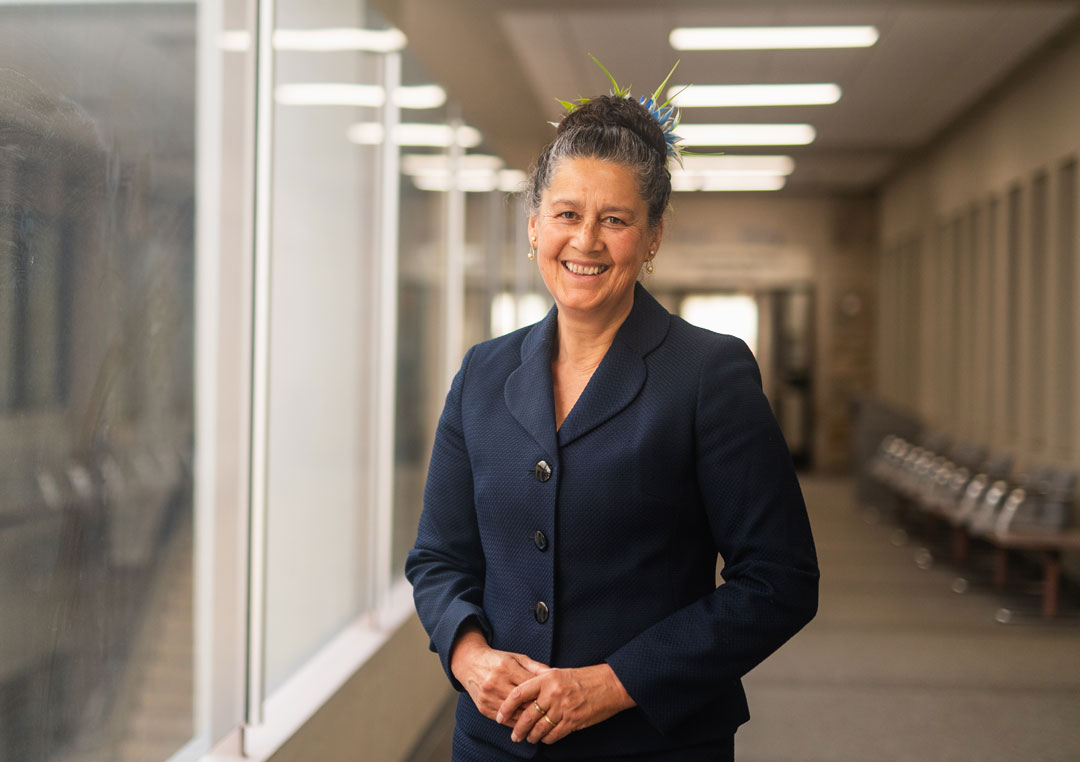
Professor Airini, USask’s provost and vice-president academic, said the graduate program aligns with the University Plan, the strategy that is guiding USask to the year 2025. Guideposts in the plan include initiatives that respond to the TRC Calls to Action, and systems and structures that support reconciliation.
“The University of Saskatchewan has the bold ambition to be the university the world needs. One of the ways we will do this is through transformative decolonization leading to reconciliation,” said Airini, who holds a professorial appointment in the College of Education. “The world needs a university in which Indigenous concepts, methodologies, pedagogies, languages, and philosophies are respectfully woven into the tapestry of learning, research, scholarship, creativity, and community engagement. The Master of Education in Educational Administration — Leadership in Indigenous Education and Organizations Cohort program is a wonderful example of this aspiration realized.”
Most of the classes in the program take place online, enabling professionals in various geographical locations to study with each other and to continue their careers as they learn.
The first cohort began in September 2015 and included Indigenous graduate students from throughout Saskatchewan. The second cohort, in September 2018, was developed to meet the unique needs of learners and educational facilities at Onion Lake Cree Nation. The third and current cohort, which began in January 2023, includes First Nations, Métis, and Inuit graduate students from across Saskatchewan and Canada.
Dr. Gordon Martell (BEd’91, MEd’98, PhD’16) has taught in the MEd cohort program since it began—first as a sessional lecturer, then as a lecturer, and currently as an assistant professor in the Department of Educational Administration in the College of Education. He said the program has focused on “critiquing Western influences and constructs in education and really thinking, as Indigenous people, how can we draw down this knowledge and figure out how to lead in ways that are good for all and great for some, and that will advance the notion of First Nations control of First Nations education and the Indigenous education goals in general.”
“I always say we master the content that everyone else gets, and we enhance the learning experience through Indigenous themes, content, and perspectives,” said Martell, a member of the Waterhen Lake First Nation. “We facilitate a value-added learning experience that’s very much tailored to the kind of contexts they encounter.”
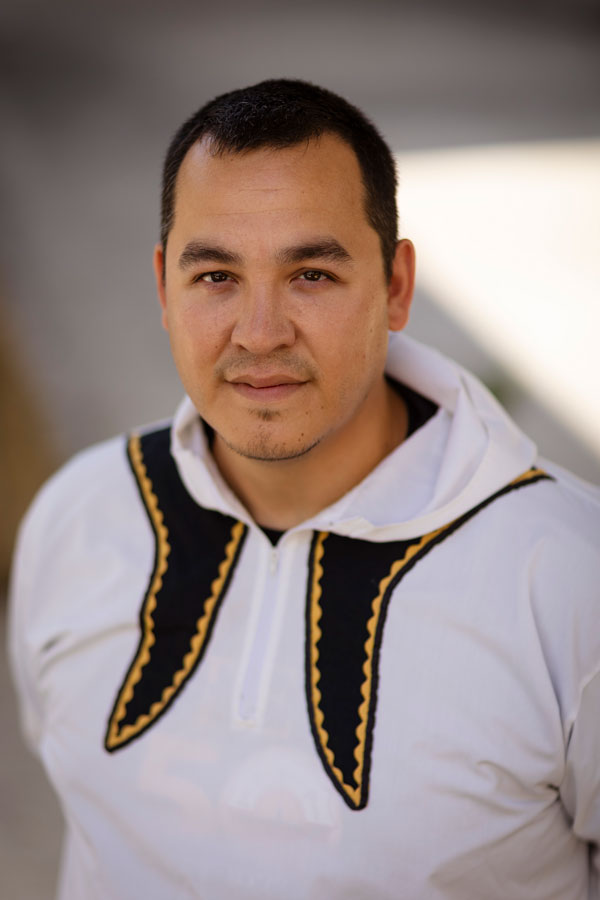
USask student Dwayne T. Drescher “Atjgaliaq” (BEd’16)—who was born in Fort Smith, N.W.T., and raised in Tuktoyaktuk, NW.T.—credits his Inuit Elders with instilling in him the values of respectful leadership. After completing his Bachelor of Education degree in 2016 through ITEP at USask, Drescher wanted to continue to pursue his goals of language revitalization and leading his people. With the support of his wife, Drescher enrolled in the MEd cohort program in January 2023.
“I knew my goal was to learn—so the content was, and is, still very important to me—but what I have found so far in this program is that I have learned just as much knowledge from my classmates’ perspectives as I have the content from the classes,” he said. “Creating these relationships with my cohort has truly been amazing, and I am humbled and honoured to be able to call them my classmates and friends.”
After Drescher completes the program, he would like to return to his home community to serve as a leader, either as an Indigenous superintendent or as a CEO. He describes the MEd program as “top-notch” and recommends it to others.
“My first year as a professional educator, my superintendent was Indigenous, and I knew of her. She blazed the trail for me. That showed me that us Indigenous people can lead in any sector, field, and workplace out there,” said Drescher. “Simply put, there are not enough Indigenous leaders out there, and we need more. So, if you have the experience and/or the credentials, then get on a computer and apply for this program.”
Martell said the graduates of the MEd cohort program have gone on to occupy many educational leadership positions, including as directors in school systems, and they “are adding great value” to schools and communities. Martell wants to build confidence among the cohort members, and to show them that their knowledges and experiences as Indigenous teachers and leaders are valuable and can strengthen the learning experiences of others.
“As a Treaty First Nations person, I would say this is nation building. This is how it gets done,” he said. “Every student that acquires that parchment, that graduate degree—they’re on to a different trajectory of participation and influence in the provincial educational system, in First Nations education, and in fulfilling the promise of Indigenous control of Indigenous education.
“In a lot of ways, to me, the real reward and gratification of working with these students is removing barriers. To create that equitable context that allows Indigenous ways of knowing, being, and doing to flourish in publicly funded and band-controlled education in the country, we need to have Indigenous leaders at all levels—at policy tables, at governance tables, at decision-making tables, writing the curricula, and reforming the system so that it serves all well.”


